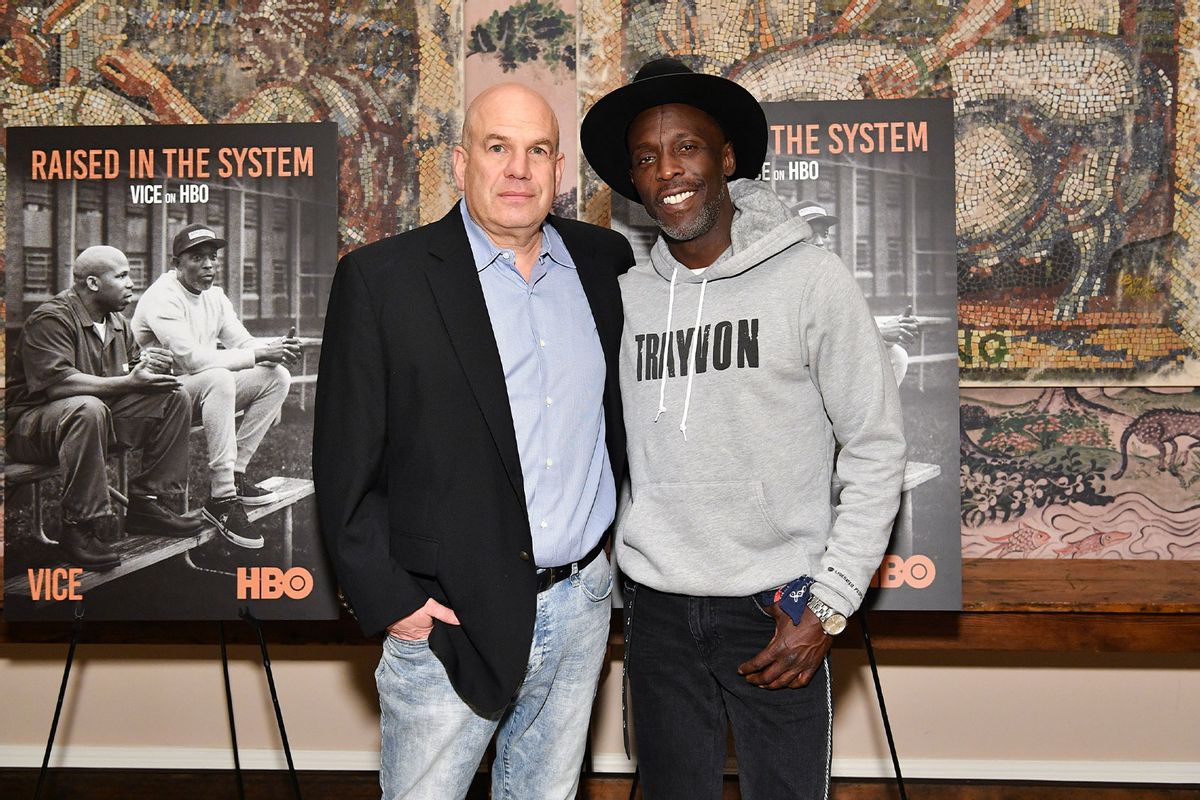“The Wire” co-creator David Simon continues to fight the war on drugs, wanting to see real change

David Simon, co-creator of HBO’s “The Wire,” is still taking a hard stance against the war on drugs, especially regarding a man who’s been charged with in an actor’s death, according to the New York Times.
You may have never heard of Benjamin Zeman, but he is the lawyer of Carlos Macci, 71. Macci is a part of the crew who sold actor Michael K. Williams heroin laced with the deadly fentanyl dose that took his life back in 2021.
Williams, who starred as legendary stickup artist Omar who only targeted dealers, was one of the few actors from “The Wire” that truly combed the streets of Baltimore like a local. He would be in the trenches as well as the ritzy spots. It wasn’t strange to see him in Cherry Hill, Down Da Hill, up the village or sitting outside of a Mount Vernon café with a cup of tea. He has even been spotted taking a stroll through different housing projects. I met the guy a few times before I started my career as a writer, established a deeper relationship with him after interviewing him for Salon, and was even set to be a character in a documentary he was working on about poor housing and lead paint poisoning.
That brother was an advocate for people, truly understood struggle, and even had a documentary about prison reform, HBO’s “Raised in the System.” I would never try to speak for Williams, but deep down in my soul I feel that he would not have thought that prison was the answer for Macci.
“The court’s probation office have recommended a sentence of 10 years for Macci, who has been detained since the time of his arrest.”
David Simon has been my mentor for years, a person I lean on for advice, and complain to or with about policing as well as the publishing industry. Simon even gave me my first television job, as a writer on “We Own This City,” a show that fits perfectly into his body of work that constantly exposes the many problems created by the so-called drug war. Our job as writers in that room, was not just telling the story of the corrupt Gun Trace Task Force officers, but also the story of failed policy, showing how the drug war, and the city’s hunger for arrest stats gave them the license to rob, steal, abuse citizens and sell more drugs.
Simon also did this with his book and the television show both titled “The Corner,” where we meet the McCulloughs of west Baltimore, a family who lived directly in the center of the drug trade. In their neighborhood, the drug trade is an essential part of the community’s ecosystem, and not enough policy makers ask why. While people continued to die in and around the McCulloughs orbit, the system offers the same ineffective remedies: impossible routes towards treatment, more cops to lock up more people, more jail and never, ever stopping narcotics from entering the community or fighting for better employment opportunities.
So of course, Simon would not advocate for Macci to serve 10 years in prison, because he knows that sentence would not begin to solve any real problems. Lock up Macci for 10 years or even 10 days and there will be another person in line, ready and eager to sell the same drugs. We need to remove the drugs and the need to use and sell them, not the people who do. Simon has been tweeting, writing, screaming and making art about this throughout the duration of his career.
The court’s probation office recommended the sentence of 10 years for Macci, who has been detained since the time of his arrest. Zeman, hip to the many ways in which Simon articulated the problems with the drug war over his career, reached out to him, to write a letter on Macci behalf.
“Mike was always aware that addiction and the impulse toward addiction would remain a constant in his life,” Simon wrote to Manhattan Federal Court Judge Ronnie Abrams.
He spoke of it to me bluntly at points and he never discounted the threat. At the same time, in all of his address of these struggles, Michael always declared that he was responsible for himself, that the decision whether to use or to cease using would always be his own.
When one of his previous sources of supply — not a dealer, but a co-user — was discovered to have some proximity to our film sets, Michael insisted that the matter was to be addressed by changes in his own behavior rather than anything punitive to anyone else. I never failed to see him take responsibility for himself and his decisions.
According to Simon, Williams would take responsibility for his own actions and fully understand that ” . . . No possible good can come from incarcerating a 71-year-old, largely illiterate, who had himself struggled with a lifetime of addiction and who was not engaged in street-level sales of narcotics with ambitions of success and profit, but rather as someone caught up in the diaspora of addiction himself, living one day to the next and heedless of the damage done not only to others, but to himself.”
Instead of lengthy prison sentences, Macci, along with the rest of the people charged in the Williams overdose case should have to spend the rest of their time working with organizations that Williams cared deeply about, like reentry and prison reform. And that would be a sentence that matters.
Read more
about this topic

